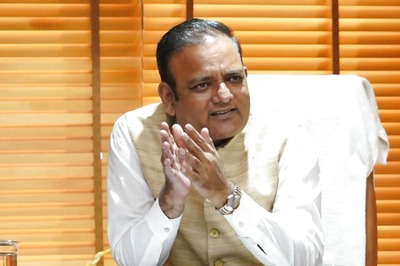
views
BALASORE: At a time when the power distribution companies (distcoms) in the State have been putting pressure on the Odisha Electricity Regulatory Commission (OERC) to increase power tariff citing massive losses, a profit-making business house has been allowed to default dues ofRs 161.54 crore.The distcom, North Eastern Electricity Supply Company (Nesco), is yet to recover Rs 161.54 crore pending with a power intensive unit - Balasore Alloys Limited (BAL), formerly Ispat Alloys Limited, as on November 1, 2011. BAL, incorporated here in 1984, has five furnaces with a total capacity of 57 MVA to produce 95,000 MT bulk ferro alloys per annum.Reliable sources told this paper that while the arrear amount is pending on the ferro-alloys company for the last several years, Nesco has hardly done anything to recover the amount. No tangible action has been initiated by Nesco to recover the amount despite the fact that the Gridco has submitted before the Odisha High Court stating that BAL was the major defaulter of electricity bills in the State.Nesco authorities are reportedly in the process of one-time arrear settlement by waiving around Rs 133.54 crore. It is learnt BAL had already paid Rs 5 crore, out of the total settled amount of Rs 28 crore.While the distcoms are reluctant to invest on infrastructure development citing that they have been facing huge losses, how is Nesco, which turns harsh on defaulting domestic consumers, think of writing off such a big amount? What is the rationale of going for the settlement when the company has been leased out a precious chromite mine in the State and is making a profit of nearly Rs 13 crore a month? BAL authorities couldn’t be contacted for comment. Though ‘The Express’ wanted a clarification from Managing Director, Nesco, SN Rane through an e-mail, he didn’t respond. Nesco secretary DK Hota, however, said all the documents are available with the Gridco and hence declined to comment.Gridco CMD Hemant Sharma said he would look into the matter.Meanwhile, a million dollar question that haunts the domestic consumer is why is this arrears allowed to roll over for so many years?




















Comments
0 comment